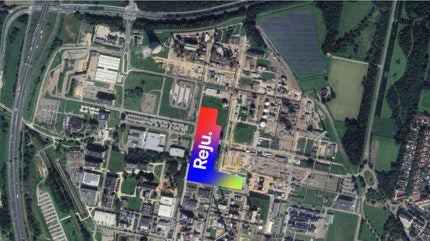
The new Regeneration Hub One is focused on expediting the development of a scalable circular infrastructure for textile waste regeneration by Reju.
This strategic move follows the debut of its prototype facility in Frankfurt last October.

Discover B2B Marketing That Performs
Combine business intelligence and editorial excellence to reach engaged professionals across 36 leading media platforms.
The investment for the forthcoming Regeneration Hub One is subject to the final investment decision by the board of Reju’s owner Technip Energies.
Chemelot was chosen for its infrastructure and synergistic industrial community, which are anticipated to bolster the company’s operational efficiency.
Once commissioned, the hub will repurpose up to 300m garments annually, thereby averting their relegation to waste. It is estimated that the facility will generate 50,000 tonnes (t) of recycled bis-hydroxyethyl terephthalate (BHET) each year, which will be transformed into Reju PET.
This recycled material will subsequently be used to produce Reju Polyester, characterised by a carbon footprint that is half that of its virgin counterpart. This material will then re-enter the production cycle, being crafted into yarns and textiles for consumer goods.

US Tariffs are shifting - will you react or anticipate?
Don’t let policy changes catch you off guard. Stay proactive with real-time data and expert analysis.
By GlobalDataReju explained that in Europe, textile consumption has escalated to 19kg in 2022 compared with 17kg per capita in 2019. It added that this surge has been mirrored by an increase in textile waste and in 2022 alone, EU nations disposed of roughly 94m tonnes of textiles.
The company will offer a transparent textile-to-textile recycling process by collaborating with upstream partners.
Reju CEO Patrik Frisk said: “This is a major milestone for Reju. With this announcement of a site for Regeneration Hub One, we are reinforcing our commitment to transforming the textile industry through innovation and collaboration.
“Chemelot is the ideal environment for scaling our technology and integrating into a broader network of industrial power houses which are also focused on circularity. This is where we want to prove that textile-to-textile circularity at scale is achievable.”
Rejuis said to reduce the dependence on virgin materials by leveraging proprietary technology from IBM Research to drive sustainability and circularity within the textile sector and by recycling materials such as polyester.
Chemelot CEO Koos van Haasteren added: “At Chemelot, we are committed to fostering sustainable innovation and enabling circular solutions across industries. Reju’s Regeneration Hub One aligns with our mission to drive the transition toward a circular economy. By integrating their advanced textile recycling technology within our industrial ecosystem, we can help accelerate the reduction of textile waste and set new benchmarks for sustainability in the materials sector.”
The decision to establish the recycling centre at Chemelot Industrial Park was made possible through support from various Dutch entities including the Netherlands Foreign Investment Agency (NFIA), the Ministry of Infrastructure and Water Management, and the Ministry of Climate Policy and Green Growth.
In April this year, Reju collaborated with multifilament yarn manufacturers Utexa and Antex to advance its regenerated polyester in yarn production.





